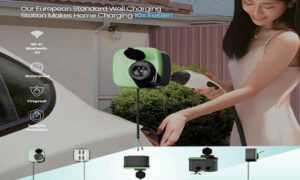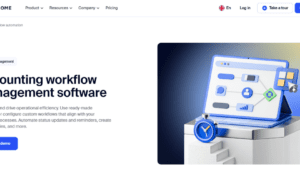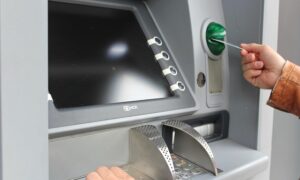Forget everything you think you know about virtual reality. No longer presented as part of some dystopian future in sci-fi films, in today’s remote-first world the need to meaningfully connect has brought about a seismic shift in how VR technology is being viewed. Bringing it to the forefront of people’s everyday lives, its place in the market appears fixed for the foreseeable future as the world begins to embrace a new “hybrid” model of work and play. One where in-person and virtual environments are able to seamlessly co-exist.
The Virtulab is a UK-based company banking on the potential of hybrid events. It has recently announced the launch of two new versions of their Virtuworx platform, Virtuworx Immerse and Virtuworx Connect, which will help ensure connections are possible no matter where you are. Their team of digital architects have worked diligently over the past 18 months to bring a project, originally used as an in-house training solution for oil and gas engineers, to a much wider user base. Offering clients around the globe the opportunity to custom-build a digital environment around their own requirements.
“With Immerse, we want to give people the full richness of the virtual experience. You can create your own avatar and explore the digital environment, moving around and interacting as you naturally would in real life. Connecting in a fun way that’s a bit more engrossing than your typical Zoom call,” explains The Virtulab’s Chief Technology Officer, Wayne Strydom.
“But broadband availability still is unevenly distributed, even within developed economies. So we needed another way to include those who either can’t download the Virtuworx Immerse software or don’t have access to sufficient broadband. That’s where Connect comes in.. More like a HopIn or Zoom experience, attendees are still able to log in and make connections, no matter their location.”
As the world begins to slowly release its “Stay at Home” orders, live events as well as business meetings and trade shows are beginning to book up again. But if 2020 taught us anything, it’s that preparation and contingency plans should never again be taken for granted. While many are eager to get back out in the world and experience in-person events, there are others who have found the positives in living and working “remotely.”
Moving forward, many professionals and businesses will be looking for ways to cater to both in-person and remote attendees when planning events. According to EVENTMB, 2020, 71 percent of event planners intend to continue employing a digital strategy to maintain their virtual audience even after they return to physical events. With 66.5 percent stating they plan to use hybrid models as their go-to format in the future.
The Virtuworx platform is geared towards this trend, offering clients a unique opportunity to build an environment that will bring together the physical and digital experience like never before. The company has already garnered success, hosting the first-ever avatar-based TEDx event last year, as well as partnering with Idna Africa to create digital solutions for the South African event management company’s clients.
“What the Virtuworx team has achieved in the last year is remarkable,” says The Virtulab’s Executive Director David Cummins. “We see hybrid events developing extremely rapidly over the next few years. This is a great way for people to increase the productivity of their teams and at the same time decrease their carbon footprint. Events will now be accessible to a whole new category of attendees. Exploring opportunities to connect and share ideas in ways that before just wouldn’t have been possible.”
But will it be necessary when things return to normal, and people begin to go back to the office? Cummins strongly believes it will and points out that many big corporations are trying to unload their office spaces, including Lloyds Banking Group with a claim that they will be getting rid of up to 20 percent of their office spaces.
“In addition to hosting virtual events and conferences, I see Virtuworx becoming the new office space of the future. Sure, companies will still need physical offices but not every employee will need to be there all the time. The hybrid working model will require the right mix of digitalisation to ensure teams are connected and adding value, whether they’re at their desk or working from home,” says Cummins.
With the Virtuworx platform, virtual and in-person attendees will be able to access the same experiences, whether it’s the day-to-day experience of work, or an event, mingling and interacting in a way that’s inclusive and exciting. There’s the opportunity for advertising to be included in your virtual world, as well as analytics that are available to help measure productivity and engagement, with clients able to dictate how they want this used.
For forward-thinking companies, the platform offers the possibility of meaningful interactions, not just with employees, but their wider ecosystem of customers and suppliers in a kind of always-on ‘digital campus’, an advantage the South African Green Building Council recently created using the Virtuworx platform to engage their network of members.
As more people look towards a post-pandemic world, companies like The Virtulab are positioning themselves to be able to cater to the needs of businesses ready to expand their talent pools and reach. Whether it’s the corporate world or the realm of live events, digital and virtual technologies are poised to transform to an inevitably hybrid future.



































